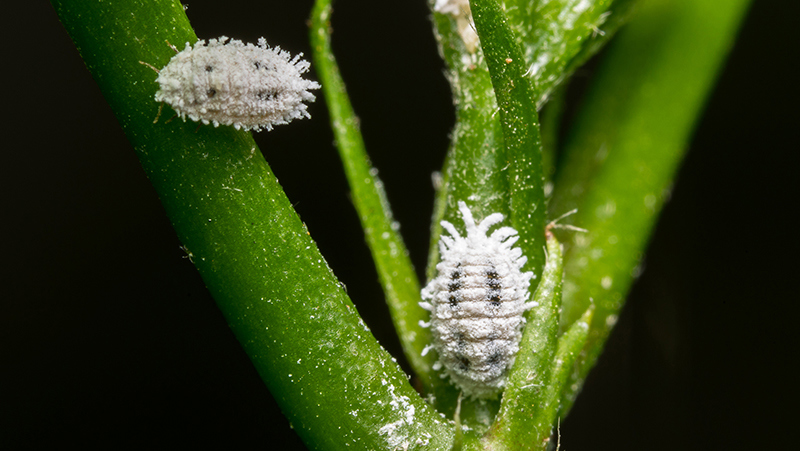Yates Account
Join now
Create a Yates account today!
Sign up to join the Yates Garden Club for monthly e-mails packed with seasonal inspiration, tips for success & exclusive promotions.
Plus if you’re a Garden Club member you can take part in the Yates Growing Community - a blog to share successes, get advice & win prizes in fun challenges along the way!

Forgot password
Enter the email address associated with your account, and we'll email you a new password.
Pseudococcidae

What are Mealybugs?
Mealybugs are small flat-bodied insects, covered with a powdery-looking white coating; some have a fringe of white cottony threads attached to their bodies. Mealybugs feed by sucking on plant juices, then excrete a sweet, sticky substance called honeydew which attracts ants. Honeydew also provides a perfect medium for sooty mould growth.
A persistent offender is the Longtailed Mealybug (Pseudococcus longispinus)
Mild temperatures and high humidity are perfect conditions for mealybugs to breed, as a new generation of eggs hatches every 2-3 weeks, from spring through to autumn. Immature mealybugs prefer to hide in plant crevices or in the elbows between leaves and stems, so by the time you spot an adult the population can be bigger than you expect. Prolonged hot weather helps to reduce numbers.
Heavy infestations can occur on citrus, and grapes, plus daphne and other ornamental plants. Orchids and ferns can be vulnerable, especially in shadehouses. Mealybugs can also attack bulbs during storage, also the roots of some plants, such as polyanthus, liliums and callas.
Symptoms
New growth appears distorted with a whitish substance in the leaf axils. Close inspection will reveal the mealybugs.
Plants impacted
- Citrus trees
- Daphne
- Other ornamental plants
- Orchids
- Ferns
- Bulbs in storage
- The roots of some plants such as polyanthus, liliums and callas.














Share
Share this article on social media